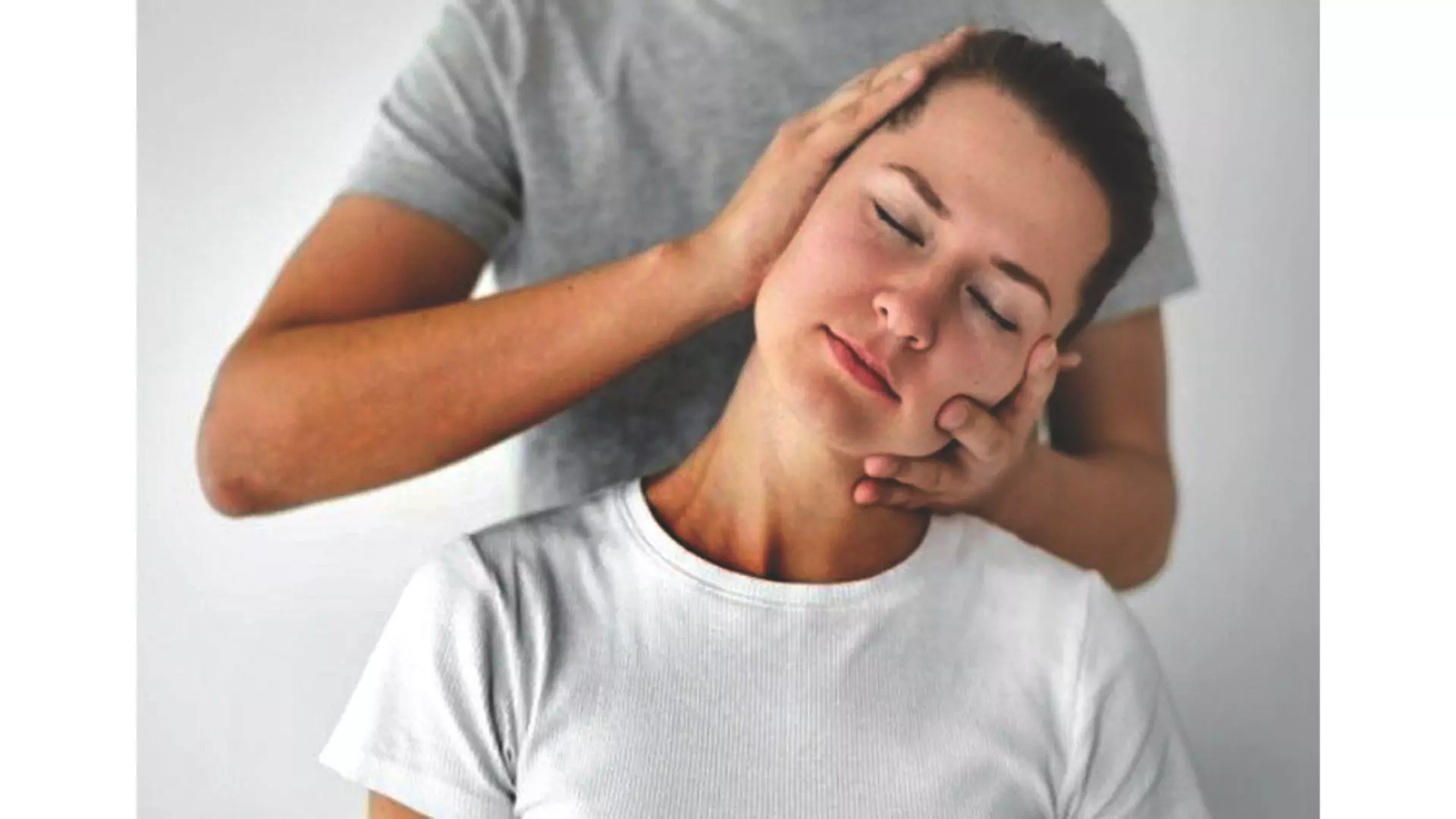A Deadly Neck cracking ordeal
Never crack, snap or pop your neck vigorously, medical expert warns that it could lead to severe injuries or even trigger a stroke

If you are one of those who loves to crack your neck forcefully at the drop of a hat or asks a masseur or the gym instructor to hold your head in their hands and snap your neck or pop it after a hard day’s work or workout to release pain, then STOP doing it at once. Medical experts warn that you should NEVER crack your neck rigorously as it could lead to severe injuries or even trigger a stroke. Many people usually say that they hear and feel popping and cracking sounds in the neck either while moving the neck or even sitting idle. This type of cracking, popping or grinding of muscles in the neck is known as neck crepitus.
Blast of Bubbles
These tiny gas bubbles can form anywhere through the area of the neck, eventually coming in contact with synovial joints, in many ways and then creating or causing popping sounds, especially in the neck’s facet joints. Long things short, these may sound similar to sounds that people usually hear when they crack their fingers knuckles, which may seem loud enough but not harmful.
“Ageing along with natural degeneration, trauma or injury, poor posture and muscle imbalance, these could serve as some of the most common causes of Neck crepitus,” says Dr Priyesh Nayak, Resident Doctor, Department of Orthopaedics, Sanjay Gandhi Memorial Hospital, Rewa MP.
Dr Priyesh opines that even sitting for long hours in one particular position along with having a sedentary lifestyle could all contribute to neck crepitus.
Yet, an interesting fact here is that many from the medical fraternity are yet unsure about these sounds being created by gas bubbles being created or perhaps, due to a collapse here! Most in the medical community safely assume that these sounds are from the bubbles collapsing. However, this has yet to be proven.
Painless Neck
Neck crepitus could be caused due to a variety of reasons. From ligaments and tendons having some sort of face off, to the possibility of a moving ligament or tendon making a snapping sound as it moves around a particular bone and/or over each other. This occurs, as the muscles and tissues get too tight or otherwise simply as a result of less elasticity due to age.
Dr Priyesh says, “Occasional neck cracking is generally safe. However, excessive cracking can potentially lead to injuries, so it's best one avoids overdoing it.” Adding here, that many times this seems to be a permanent condition.
Even though the facet joints (connecting joints between the bone and spine) can be asymmetrical and lead to gas bubbles forming in the space under the joint. These usually tend to be less painful or many times, painless. However, the soft and sharp ‘snap’ that may be startling to some is simply from the tension of the tendon moving over another tendon or bone!
Simply put, if one’s neck is knocking (cracking, grinding or popping) and there’s no pain, there’s usually nothing concerning it. However, if the same is followed by stiffness, then perhaps that could be a sign of developing arthritis or any other similar condition.
Age Groups Most Prone
Despite no established studies pertaining to a fixed or targeted age group being susceptible to neck crepitus, many believe that this could usually hit one as
one ages. “The age group of 50+ is more susceptible to neck crepitus,” says Dr Priyesh. Explaining that as one ages, degenerative changes usually occur in the spine as well. Dr Priyesh adds, “The spine’s vertebrae, discs and joints then become more susceptible to wear and tear” While this is true, Osteoarthritis and cartilage wear too, could play a significant role in triggering aka inviting conditions of neck crepitus. However, there is another school of thought that believes that younger patients having a very active and sports-related lifestyle can also develop this condition.
Timely Measures
Usually, cases of neck crepitus need tweaks here and there pertaining to lifestyle modifications that could be incorporated to manage and deal with the pain that follows. However, a balanced work-life balance too, could help in many ways.
“Exercising and stretching routines can improve muscle strength and flexibility, reducing the likelihood of crepitus knocking on one’s doors,” adds Dr Priyesh. Explaining that other techniques such as heat and cold therapies in terms of applying warm compresses or using ice packs too, could provide temporary relief from pain and any sort of inflammation.
However, he reiterates that if the condition persists, it’s advisable and wise to visit a specialist rather than simply delay and worsen the condition. He adds, “If neck crepitus is accompanied by pain, swelling, reduced mobility, or other concerning symptoms, it’s important to consult a healthcare professional for evaluation.”
Despite the tempting need of constantly cracking your neck, perhaps it’s required that one acts mindful when it comes to matters of the neck. Avoiding such early signs and symptoms could prove fatal if taken lightly for too long!

